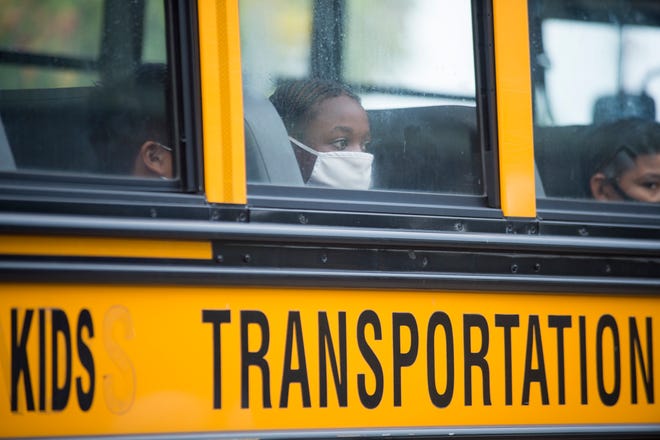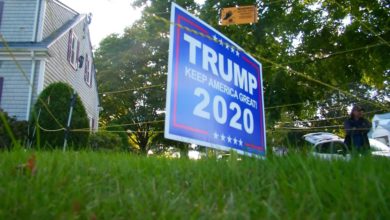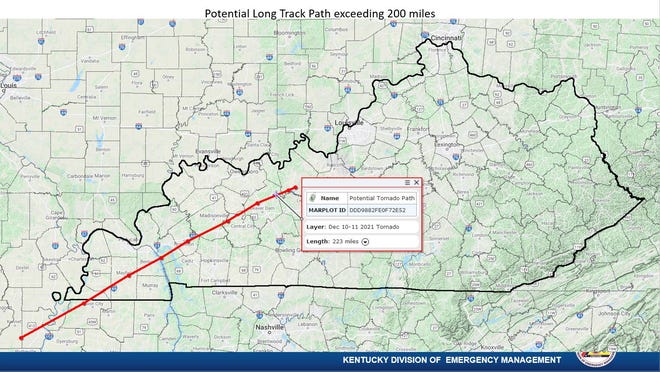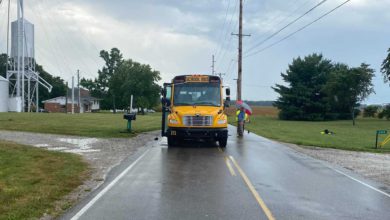
Mimi Allen has two daughters, 14 and 10. She is raising them alone. They are her world.
So while the Phoenix financial adviser doesn’t usually go for rule-breaking, she recently decided to slip into a local pharmacy and get her younger daughter a Pfizer COVID-19 vaccination, which is approved only for those 12 and older.
Allen told her immunocompromised daughter the plan, fibbed about her child’s age at the counter, and walked out relieved.
“I’m a mother who needs to keep her children safe, and if the governor here had mandated masks in school I might have thought differently,” said Allen, 55, who declined to give her daughters’ names out of concern for any backlash. “I’m an ethical person. But after my daughters, my concern is me. If they get it and pass it on and I’m hospitalized or dead, my kids are in trouble.”
Allen’s quandary is shared by millions of Americans who, as schools go back in session, ponder the best way to keep their vaccine-ineligible young ones safe as the delta variant continues its rampage and some state leaders resist in-school mask mandates.
Having a child under 12 receive the vaccine raises medical and ethical questions and can bring justifications that can range from understandable to specious. Among the former: Children with underlying conditions deserve a shot considering the alternative. The latter: With many people declining the vaccine one might as well use a dose, although doses are still needed for at-risk adult holdouts.
When asked their opinion, doctors and ethicists gave USA TODAY a unanimous verdict: Though the temptation is understandable, getting a child the COVID-19 vaccine introduces risks that may outweigh the benefits.

“I know there’s a lot of anxiety out there, but it really doesn’t justify going outside the lines,” said Dr. Sean O’Leary, an infectious diseases specialist at Children’s Hospital Colorado in Aurora. “The No. 1 issue with any vaccine is safety for the patient.”
O’Leary is a member of the American Academy of Pediatrics, whose CEO recently sent a letter to the Food and Drug Administration urging the agency to speed approval of vaccines for those under 12, leveraging data that is being compiled from ongoing trials.
Most experts predict such an approval could come as early as this fall but as late as early winter.
The FDA is in a race against the clock on a few fronts. When it comes to adults, some Americans have said they will get a shot only when the agency gives full, versus just emergency, approval of the vaccines. The Biden administration has said that may happen next month.
And for kids, delaying even emergency approval – which could happen if the FDA decides to add children to its current trial – raises the stakes as hospitals increasingly see younger unvaccinated patients.

Last week saw the largest leap since the pandemic began of pediatric COVID-19 cases, about 72,000 from 39,000 the previous week, according to the American Academy of Pediatrics. Doctors in hard-hit states such as Kentucky and Texas report that some children are being put on ventilators.
Given those concerning trends, there’s little surprise some parents are mulling taking matters into their own hands.
The temptation to jump the line is often fueled by news that many Americans are not choosing to get vaccinated, by the assumption that 12-and-over eligibility can feel like an arbitrary cutoff, and by the simple physiological fact that some 11-year-olds appear developed beyond their years.
Dr. Peter Hotez of Baylor College of Medicine in Houston has “sympathy for parents just trying to make the best decisions they can based on many government leaders who are unwilling to protect them.” Texas Gov. Greg Abbott has banned mask mandates, a decision that is being challenged in court and defied by a number of county school districts.
But Hotez believes the answer isn’t to sneak younger kids in for a shot. Rather, he urges parents to put their anger and frustration into fighting for mask mandates while the FDA continues its research into the efficacy, side effects and even appropriate dose level for those under 12.
“The FDA is working as expeditiously as possible, but the reason we’re conservative with kids is because if you get things wrong, the stakes are higher,” said Hotez, who also is co-director of the Center for Vaccine Development at Texas Children’s Hospital in Houston.

Hotez notes that “not all 11-year-olds are created equal,” and the vaccine’s effect on children may prove different from the effect on adults. There is also the possibility that researchers may determine that those under 12 should receive half an adult vaccine dose. Lastly, he points out that the FDA has never approved a vaccine for younger kids on an emergency use basis. “It’s a murky and complicated road map,” he said.
Dr. Stuart Finder, director of the Center for Healthcare Ethics at Cedars Sinai in Los Angeles, seconds that note of caution.
As a father of three, he said he understands the heightened sense of concern many parents are experiencing, but that shouldn’t mean abandoning a sense of trust in the science that produced the vaccines themselves.
“Time is a weird thing,” he said, noting that only eight months have passed since the FDA granted emergency approval for the vaccines for adults, a millisecond in scientific research terms. By comparison, it took about 50 years of development for a polio vaccine to finally be approved in 1952, ending a scourge of its day.
Asked what he would tell parents, Finder offers advice that may prove difficult to act on in these fraught political times. Given that medical experts agree that masks help cut the risk of getting COVID-19, he encourages parents have kids wear masks while they themselves engage in discussions with friends and relatives about what is important to them. "We have to find some mutual understanding," he said.

Another bit of advice comes from Nancy Berlinger, research scholar at The Hastings Center, an independent bioethics institute in Garrison, New York. Put simply: “Before you lie to a pharmacist about your kid’s age, call or video chat your physician and get some information about why this vaccine is not yet approved for kids.”
Berlinger has an 11-year-old niece and would love to know she’s protected from COVID-19. But she doesn’t hesitate when asked if there are any circumstances in which slipping her niece into the vaccine queue would be OK.
“Well, lying is wrong. We tell children not to do that,” she said. “Involving your child in this lie seems hard to justify. It doesn’t seem worth it, as a parent, to be forced into a lie, falsify a medical record and perhaps get false benefits from the vaccine, all when the FDA may well fast-track this for kids soon.”
When Arizona mom Allen decided her youngest needed the vaccine despite it not being approved for her age group, she told her daughter the plan. Once they agreed, they set off together and have not looked back.

“I don’t feel unethical at all, especially when many adults are refusing the shot and it’s available,” Allen said. “My kid is compromised in terms of her health. I’ve had clients, friends and family members die from COVID-19. It’s real. It worries me. I’m teaching my 14-year-old how to pay the mortgage, because you just really don’t know what’s going to happen if you get this.”
After getting her youngest vaccinated, Allen decided to announce the news to those who follow her on Facebook. “My point was just trying to get her friends to consider getting vaccinated,” she said.
Some of Allen’s family and friends are vocal about being anti-vaccine, she said, and they simply didn’t comment on her post.
“I’m not saying everyone should take the same action. It’s different for everyone,” Allen said. But, she said, a few friends direct-messaged her after the post "asking me how I got this done. In one family I know, the mother had a breakthrough case, and then the daughter got COVID-19. She wrote, ‘I wish I’d done what you did.’”
Source link









